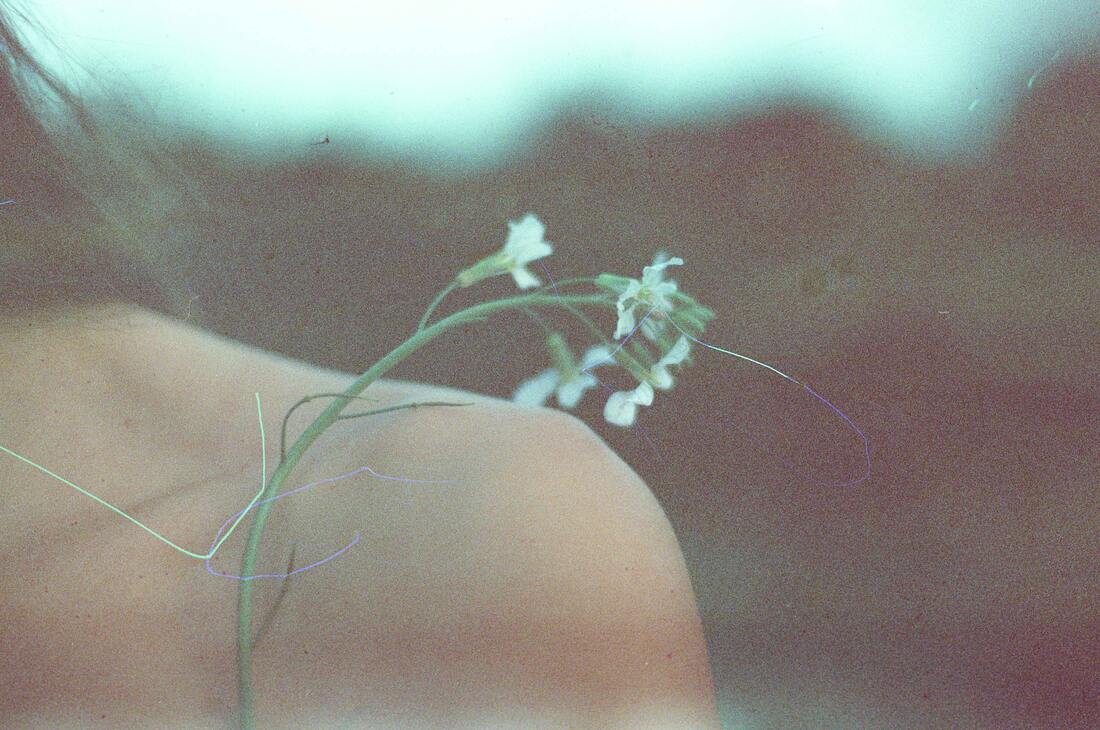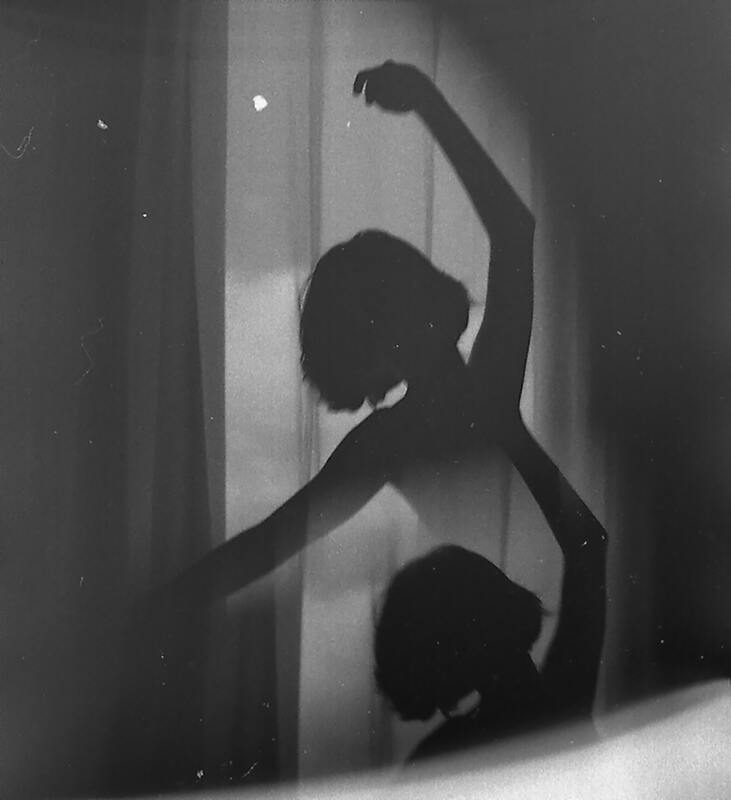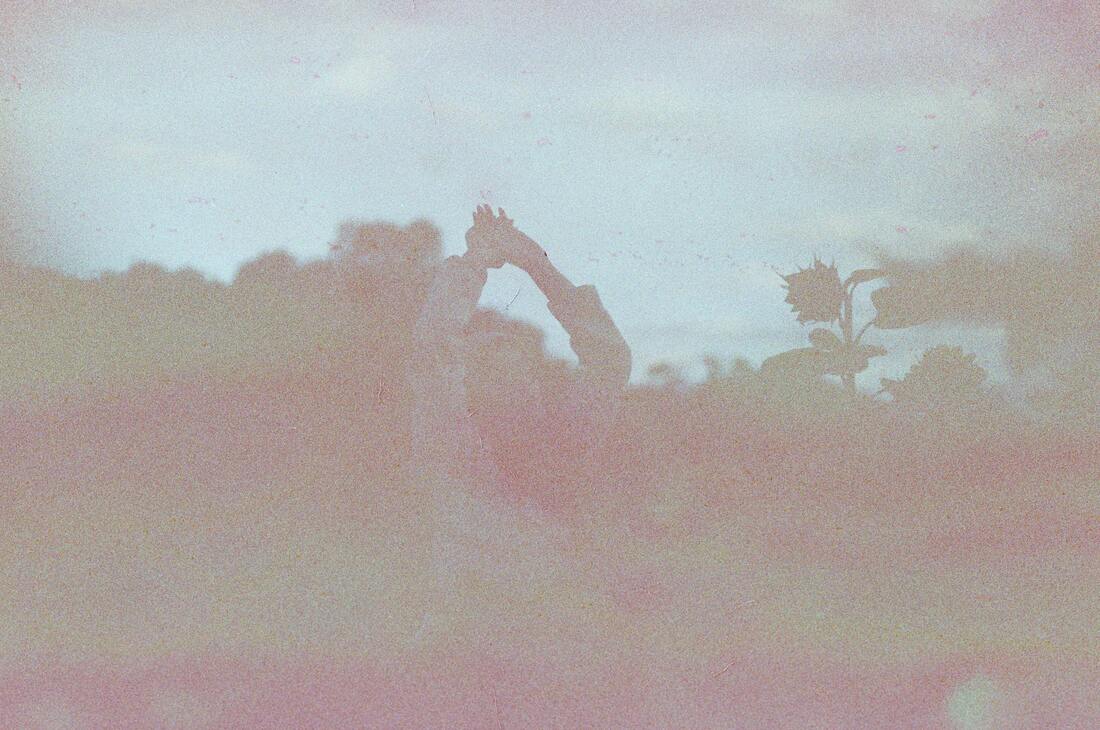The Thing That Can't Wait: A reflection on Ruminate's William Van Dyke Award
It was the early seventies. On city streets and squares, people marched. They held up signs:
Gay Power. Black Power. Power to the People.
End the War Before It Ends You.
Women’s Rights Are Human Rights.
People wanted to love who they loved. Women wanted freedom over their bodies. They wanted their time to be valued.
Women worked in offices, clacking words into whitespace. They taught kids at every age, everything from subtraction to bread-baking. They were running for office and running a movement. They stayed home. In the suburbs and in old farmhouses, they stood at their stoves. At sinks, dishwater pruned their hands. They were paid a fraction. They weren’t paid at all.
It was a different time. A time I didn’t live through, but I could imagine from my mother’s stories. Although she lived far from any city, the closest protest appearing on the TV news, this era was the backdrop to her days and to my gran’s—who worked from dawn to care for others. She worried over the rain and the crops and a band of strong-willed daughters, the dirty dishes and what was for dinner. This era, their old farmhouse, the days they rambled around that small town—these elements gave color to my story “Little to do with Rain” and to the mother and daughter who live in its pages.
It was a different time, and yet, it doesn’t seem so far away. Not so far off—because this struggle is what I know of the women around me, right now. Women with four-year-olds and twelve-year-olds and teens. Women in partnerships and women who live alone. Women with friends like family. Who’ve lost jobs and quit jobs to be home. With jobs that consume their days and their heads, possibly their hearts. It’s been said, now, in this time of outbreak and unrest, women are doing even more for others, adding to already crowded days.
It was the early seventies. On city streets and squares, people marched. They held up signs:
Gay Power. Black Power. Power to the People.
End the War Before It Ends You.
Women’s Rights Are Human Rights.
People wanted to love who they loved. Women wanted freedom over their bodies. They wanted their time to be valued.
Women worked in offices, clacking words into whitespace. They taught kids at every age, everything from subtraction to bread-baking. They were running for office and running a movement. They stayed home. In the suburbs and in old farmhouses, they stood at their stoves. At sinks, dishwater pruned their hands. They were paid a fraction. They weren’t paid at all.
It was a different time. A time I didn’t live through, but I could imagine from my mother’s stories. Although she lived far from any city, the closest protest appearing on the TV news, this era was the backdrop to her days and to my gran’s—who worked from dawn to care for others. She worried over the rain and the crops and a band of strong-willed daughters, the dirty dishes and what was for dinner. This era, their old farmhouse, the days they rambled around that small town—these elements gave color to my story “Little to do with Rain” and to the mother and daughter who live in its pages.
It was a different time, and yet, it doesn’t seem so far away. Not so far off—because this struggle is what I know of the women around me, right now. Women with four-year-olds and twelve-year-olds and teens. Women in partnerships and women who live alone. Women with friends like family. Who’ve lost jobs and quit jobs to be home. With jobs that consume their days and their heads, possibly their hearts. It’s been said, now, in this time of outbreak and unrest, women are doing even more for others, adding to already crowded days.
The work and care may look different,
but their spirits, their minds are full.
but their spirits, their minds are full.
My friend Renee lives an old two-story house. It used to stand in the middle of a farm, but stands now in the middle of a city. Its people still belong to the land, to plots of soil in the midst of concrete and steel, to plants that fight buildings for the sun. In that house, Renee is thinking about her fields of tomatoes and peppers, about getting the kale ready for fall. She’s thinking about her son and husband. Are there enough beans for lunch? And when will they do the earthworm experiment? She’s baking sourdough for her neighbors who are out of work and washing her bandana so she can get to the protests down the street. She’s preparing a room for her friend who needs a place to land.
In the early morning hours, she wakes with a start. The big house is quiet, dusky. There is dough that requires kneading. Seedlings to water. A day’s menu to plan. And those are only the first three needs that hit her. In the back of her mind, she looks for the time to write songs, to pen stories—a time to express her self. But it seems like the thing she can let go of. The thing that can wait.
When I told Renee about winning the William Van Dyke award, she said, Oh my god. What good, good news in a time when it is so hard to come by.
Good news. Yes, but I have to admit, that it’s felt a bit frivolous.
In the early morning hours, she wakes with a start. The big house is quiet, dusky. There is dough that requires kneading. Seedlings to water. A day’s menu to plan. And those are only the first three needs that hit her. In the back of her mind, she looks for the time to write songs, to pen stories—a time to express her self. But it seems like the thing she can let go of. The thing that can wait.
When I told Renee about winning the William Van Dyke award, she said, Oh my god. What good, good news in a time when it is so hard to come by.
Good news. Yes, but I have to admit, that it’s felt a bit frivolous.
Art. Expression. The pursuit of it. The creation.
The enjoyment and celebration of it.
It really is the thing that can wait. Isn’t it?
The enjoyment and celebration of it.
It really is the thing that can wait. Isn’t it?
In “Little to Do with Rain,” the women, mother and daughter, Cellah and Rebecca, try to live in a world with expectations for them. There are pieces of themselves that they mourn. Pieces they’ve let go. The mother Cellah writes in the margins of her calendar, It used to be, the sky had little to do with rain. The sky had little to do with worry. Way back—what did I see there?
Her daughter, Rebecca, on the brink of huge change, begins to feel that even her body is not her own. In the night, she wakes with a shudder, a feeling in her chest that seems foreign. It woke me—a-flit, then gone—and I never waited for its return. Half asleep, grasping in the dark, my fingers found the radio . . . volume high as I dared. Keep rollin’ and on and on. A beat I knew against my ribs.
In the writing of their stories, it made sense to me that as the world asked more and more from these women, they would search for a space, any space—as small as the margins of a calendar or a pause between wiping dishes. A space in which to express themselves. A prayer that would ring like the blues. A song sung softly—a voice stuck on a lyric, like vinyl skipping.
It made sense that they would search for space. That was my instinct.
“Little to Do with Rain” reminds me of the hidden work that people do everyday and the pieces of themselves that they sacrifice along the way. But it also makes me think about the pieces of ourselves we must try to keep alive.
Her daughter, Rebecca, on the brink of huge change, begins to feel that even her body is not her own. In the night, she wakes with a shudder, a feeling in her chest that seems foreign. It woke me—a-flit, then gone—and I never waited for its return. Half asleep, grasping in the dark, my fingers found the radio . . . volume high as I dared. Keep rollin’ and on and on. A beat I knew against my ribs.
In the writing of their stories, it made sense to me that as the world asked more and more from these women, they would search for a space, any space—as small as the margins of a calendar or a pause between wiping dishes. A space in which to express themselves. A prayer that would ring like the blues. A song sung softly—a voice stuck on a lyric, like vinyl skipping.
It made sense that they would search for space. That was my instinct.
“Little to Do with Rain” reminds me of the hidden work that people do everyday and the pieces of themselves that they sacrifice along the way. But it also makes me think about the pieces of ourselves we must try to keep alive.
We are taking care and taking care.
But we are more than that.
We are always more.
But we are more than that.
We are always more.
Growing up, I thought that I knew my mother. I thought that I knew her completely. She was the one who was always there. The one who always had time. Even though it was just her and us kids, that job nine-to-five, to be available, to take care—this seemed like the whole of her being, all of her existence. Everything else could wait. But I remember one day when I sensed something else, a part of her I didn’t know. She took us to a company picnic. There were tables and tables of mayo salads. Cans of soda bobbing in icy water. Someone had rigged up a stage. There was a microphone, a loud speaker. A book of songs. It was so hot that day, the humidity curled her hair as she took her time flipping through the list of songs, trying to find the right one. The one that spoke to her.
You might think that the song was important, but I can’t say that I remember the title she eventually chose. I couldn’t even hum the chorus for you or tap out the beat.
You might think that the song was important, but I can’t say that I remember the title she eventually chose. I couldn’t even hum the chorus for you or tap out the beat.
But I remember how she closed her eyes
when her voice came over the speaker.
It filled the air, and she moved to the music,
her whole body electrified. Alive.
when her voice came over the speaker.
It filled the air, and she moved to the music,
her whole body electrified. Alive.
originally published in "The Waking" - September 17, 2020
photos by Heloisa Vecchio


